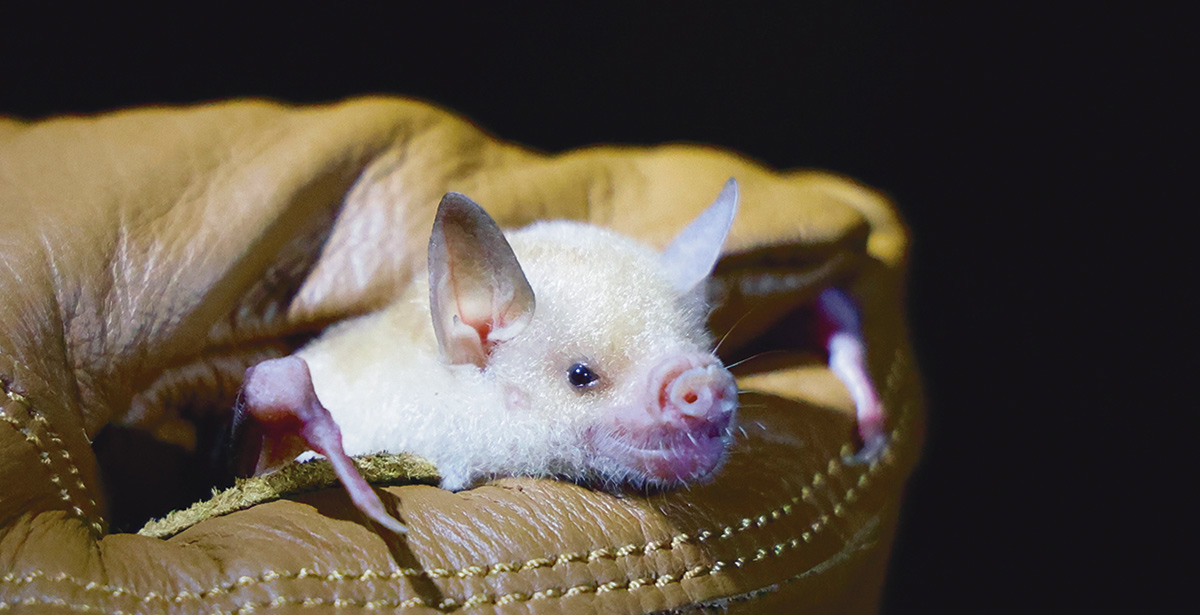
Supporters Protect Jamaican Flower Bats
With the help of supporters, BCI purchased the cave for Jamaican authorities to protect. But as development continued around the immediate area, the bats faced threats from light and noise pollution and human interference.
The final remaining forested parcel of land right next to the cave entrance became available for purchase, offering an opportunity to create a buffer zone around the cave. So BCI contacted its generous supporters to secure the funds needed to complete the purchase.
The campaign was successful, and BCI is now working to secure the cave, including installing predator-proof fences to keep feral cats out, and providing education that encourages people not to enter the cave. The cave has been utilized by guano harvesters despite the poor quality of fertilizer and the uncomfortably hot conditions, with temperatures at the back reaching 107.6 degrees Fahrenheit with 80% humidity levels.
As the cave’s inhabitants are thought to be primarily nectar-eating bats, the guano produced doesn’t contain chitin from insects ingested and is, therefore, poor fertilizer. Part of the funds raised will support efforts to educate the public and provide outreach to explain why the guano isn’t worth their time to harvest and to promote conservation efforts.

Creating lasting solutions for the future
“If we can provide alternative roosting spots for the bats, it’s a win-win because they’re not in people’s houses. They’re protected in these hurricane-resistant bat boxes, and it’s an easy alternative for people to harvest the guano underneath,” says Dr. Melquisedec Gamba-Rios, Regional Director for Latin America and Caribbean Initiatives at BCI.
The BCI team will return to Jamaica in November or December to begin essential community outreach work. They will also collaborate with The Hope Royal Botanical Gardens to offer bat walks to the public.
Now that the immediate dangers to the cave are being addressed, the team can start learning more about these bats that, for 20 years, were thought to be extinct. Since they share space with other species of bats, even counting them has been challenging. Researchers can monitor their foraging routes by following their heat signatures and discovering which plants they feed on. There are plans to study their feces using metagenomics, which involves sequencing genetic material, to identify their primary food sources.
“Membership support and the donations we get, not only from our members but also people who are just interested in this project, has allowed us to essentially save this species of bat,” Dr. Gamba-Rios says.